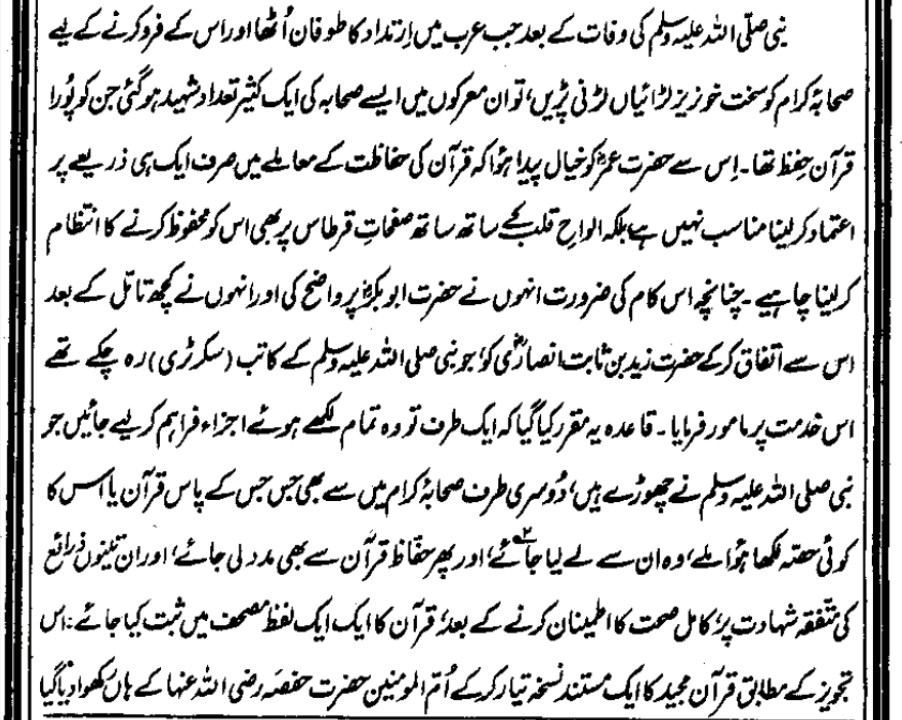It is one of the miracles of the Qur'an that it wasn't sent down as written book.
Written scriptures can be tampered with, as have happened with all previous scriptures. But Allah

preserved the Qur'an by a unique method, memorization and oral recitation.
Allah SubHanahu wa Ta'ala says:
وَإِنَّهُ لَتَنزِيلُ رَبِّ الْعَالَمِينَ ﴿١٩٢﴾ نَزَلَ بِهِ الرُّوحُ الْأَمِينُ ﴿١٩٣﴾ عَلَىٰ قَلْبِكَ لِتَكُونَ مِنَ الْمُنذِرِينَ ﴿١٩٤﴾ بِلِسَانٍ عَرَبِيٍّ مُّبِينٍ ﴿١٩٥﴾ـ
And indeed, the Qur'an is the revelation of the Lord of the worlds.
The Trustworthy Spirit has brought it down
Upon your heart, [O Muhammad] - that you may be of the warners -
In a clear Arabic language. [26:192-195]
Previous scriptures were in written from yet they were corrupted. The miracle of the Qur'an is that it is revealed on the heart of our Prophet  and it passes on from a heart to millions of hearts until Allah wills for it to be lifted near the last Day.
and it passes on from a heart to millions of hearts until Allah wills for it to be lifted near the last Day.
To preserve the complete Qur'an, Jibra'eel

used to recite the Qur'an to the Prophet

every year during Ramadhan.
Narrated Abu-Huraira
 Gabriel used to repeat the recitation of the Qur'an with the Prophet
Gabriel used to repeat the recitation of the Qur'an with the Prophet  once a year, but he repeated it twice with him in the year he died. The Prophet
once a year, but he repeated it twice with him in the year he died. The Prophet  used to stay in I'tikaf for ten days every year (in the month of Ramadan), but in the year of his death, he stayed in I'tikaf for twenty days.
used to stay in I'tikaf for ten days every year (in the month of Ramadan), but in the year of his death, he stayed in I'tikaf for twenty days. [
Bukhari]
As we can see from the above Hadith, the Qur'an was completely finalized as we have it now during the last year of the Prophet

. Since then, there has been no additions or subtractions.
The Qur'an was completely memorized by heart by several companions of the Prophet

during his lifetime. It was also written down completely during his lifetime itself but the written parchments were scattered among the companions.
During the time of first Khalifah, Abu Bakr As-Siddeeq

, the written parchments were compiled together in a book form, commonly known as
مصحف MusHaf. During the compilation, each written verse was confirmed by at least two companions who had it memorized and written during the Prophet's

lifetime.
Then again, during the time of the third Khalifah, 'Uthman ibn 'Affan

, Islam became widespread and people began reciting the Qur'an with a slight tint of their own dialects. In order to preserve the original dialect in which Qur'an was revealed, he

ordered copies of the Qur'an in the original Quraish dialect to be made and distributed to all provinces, and asked other various dialects to be discarded.
It is important to note that we have several
un-broken mutawatir chains of narration of the Qur'an present even until now.




 Quote
Quote




 preserved the Qur'an by a unique method, memorization and oral recitation.
preserved the Qur'an by a unique method, memorization and oral recitation.  and it passes on from a heart to millions of hearts until Allah wills for it to be lifted near the last Day.
and it passes on from a heart to millions of hearts until Allah wills for it to be lifted near the last Day. used to recite the Qur'an to the Prophet
used to recite the Qur'an to the Prophet  every year during Ramadhan.
every year during Ramadhan. 

 , second
, second  and third
and third 
 . See the Hadith quoted above, nobody is saying anything that goes against that Hadith except you.
. See the Hadith quoted above, nobody is saying anything that goes against that Hadith except you. 










 Hide
Hide Looks like you're enjoying the discussion, but you're not signed up for an account.
Looks like you're enjoying the discussion, but you're not signed up for an account.

Bookmarks